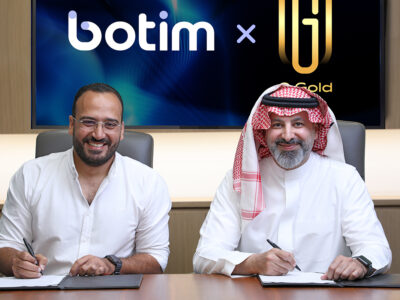Today’s financial services clients want it all: personalisation, low fees and better returns. So, how can wealth managers meet these new investor demands in a highly dynamic environment?
For years, the wealth management industry has been known for being conservative, driven by the relationship between a client and a dedicated human advisor. However, robo-advice or algorithm-led advisors are now becoming commonplace, with the advantage of lower costs and round-the-clock access.
A rapid shift in regional consumer preferences points to combining the best of both worlds – the low cost and accessibility of algorithm-driven investment advice with a human advisor’s expertise in handling more complex investing scenarios – to present an offering that sits right in the middle of the spectrum: the hybrid wealth advisor.
A golden opportunity for wealth managers
Since the onset of the Covid-19 pandemic, the industry has witnessed a rapid digital transformation, creating a fundamental change in the way advisors interact with and serve their clients. However, while the pandemic has not changed the fundamentals of the industry, it has placed pressure on wealth managers to explore innovative client servicing models.
“Digital transformation has led to the adoption of many tools to either enhance or in some cases replace traditional wealth management approaches. By introducing a variety of tools and services, organisations can enhance the experience for customers as well as wealth advisors,” says Basit Saiyed, regional head of wealth and liabilities at HSBC.
If anything, the pandemic has provided a golden opportunity for wealth managers; clients are now accustomed to digital-first, making the transition to a hybrid model more acceptable and easily adoptable. A hybrid wealth management model entails blending human and digital advice to enhance client experiences and operational efficiency.
Successful wealth managers have incorporated a high-level of digitisation around their proposition, whether it is to support client onboarding, enhance portfolio management or improve the reporting process.
“Robo advice often gives customers with simpler investment needs access to basic wealth management services. This comes with low costs, high self-service ability and is often preferred by younger demographics,” he adds.
“A hybrid model combines the advantages of digital access with an element of face-to-face meetings that many customers want. Add to this a robo-service for those customers wanting a more simplified approach, financial institutions can offer more services to more customers without needing more advisory staff.”
As technology continues to improve, there are significant benefits to be derived from digitisation, leading to increased profitability.
.jpg?ixKcepIW) Successful wealth managers have incorporated a high-level of digitisation around their proposition
Successful wealth managers have incorporated a high-level of digitisation around their proposition
Democratising wealth management
The MENA region is renowned for having one of the most expensive financial services industries globally, with wealth management services mainly catering to the ultra-high-net-worth (UHNW) and high-net-worth individuals (HNWIs).
However, with a great number of current investors being unable to fulfil the necessary qualifications for traditional wealth management services, digital financial advisory platforms have a great opportunity to fill the gap.
This means traditional advisors will need to recalibrate their offerings to achieve greater customer engagement and retention. By using algorithms to analyse a client’s profile and delivering solutions tailored to their goals and risk profile, robo-advisors are making investing simple and affordable for everyone. They have opened investment options to a wider audience at lower costs, helping democratise the wealth management world.
“The minimum you needed to start investing is very high and the fees exorbitant. Most of them are hidden, and you won’t even notice you’re paying them until it’s too late,” says Mark Chahwan, co-founder of online platform Sarwa.
“This made growing wealth through investing available only for the wealthy few. The lucky few that managed to get an investment plan are badly burnt by long lock-in periods, hefty cancelation fees, and bad advice in general. Many traditional advisors push their own products versus looking at building their customer’s wealth.”
Sarwa is the region’s fastest growing investment and personal finance platform, which has recently secured $15m from a Series B round of fund-raising. Since its launch in 2017, Sarwa’s digital advisory platform has changed how the region’s young professionals grow their wealth, offering a range of investment solutions to a market that has had little access to such services in the past.
While digital enablement may seem challenging, given that it merits integrating new systems to drive away from old practices and mandates a shift in cultural mindsets too, the GCC countries have become well-positioned to foster the development of such robo-advisory services.
“This old paper-based way of doing things isn’t adapted to today’s world and especially the post-covid world: people demand convenience, transparency and affordability,” Chahwan adds.
The hybrid model is beneficial not only for clients, but also for wealth managers. By automating the routine transactional activities, financial advisors have been able to efficiently manage more clients, while finding the time to provide the necessary human financial advice that clients seek, especially amid market volatility.
In addition, by adding digital capabilities, wealth managers are attracting the new tech-savvy younger demographic, who may not have significant assets now, but have great earning potential and might receive substantial intergenerational wealth transfers.
 Mark Chahwan, co-founder of online platform Sarwa
Mark Chahwan, co-founder of online platform Sarwa
Tapping into a new demographic
Nowadays, wealth managers need to consider their changing client base, a set of tech-savvy wealthy millennials, who place time and cost efficiency at the core of their demands.
To attract this new demographic and maintain competitiveness with their existing customer base, the hybrid approach is becoming imperative. Advisors can now engage with these customers and continue to provide cost-effective services as they move through different stages of life.
Wealth management firms should revolutionise their digital game not only because millennials demand it, but also because non-traditional competitors are offering more in the digital arena.
“Traditional wealth managers have failed to capture the younger demographic or the mass/mass affluent,” Chahwan says.
Looking ahead
Financial markets are continuously evolving, and so it has become commonplace to see AI gain traction with investors. However, a common criticism of robo-advisors and AI is that wealth management is not “one-size-fits-all” and certain aspects of financial planning will always require a human touch.
“It is premature to discount the positive impact the human intellect and personal interaction has in creating solutions for the investment community. This is particularly relevant in the wealth management industry. Clients I would argue still do enjoy working with their trusted advisors to come up with solutions that meet their financial goals,” says Arjun Mittal, a senior banker, economist and independent advisor.
“The ability of ‘humans’ to understand client psychology and hopefully create a bespoke solution is not something that algorithms can do yet. The outcome of a human devised plan maybe to use certain algorithms, but the creative thinking is still done by us.”
Sceptics of the hybrid wealth management model also argue that the full array of advantages and disadvantages of this type of investing are still not fully understood.
“Some of the disadvantages are that the machine may exit investments too early, the inability to discern irrational market moves, not all strategies can be automated and an over reliance of computing power and the need for a constant connection to the market,” Mittal adds.
However, the stigma around digital wealth management services is slowly, but surely, changing. Rather than viewing digital tools as a threat, advisors are looking to capitalise on them to strengthen client relationships.
“In this race to make money, I always believe a gradual approach is best – the tortoise wins the race. The ideal outcome, it seems to me, is a combination of human and AI/algorithms. I believe humans are still the best at creating financial investing strategies. The algorithm is a good way to execute the strategy if it can be modelled appropriately.”



.jpg)




